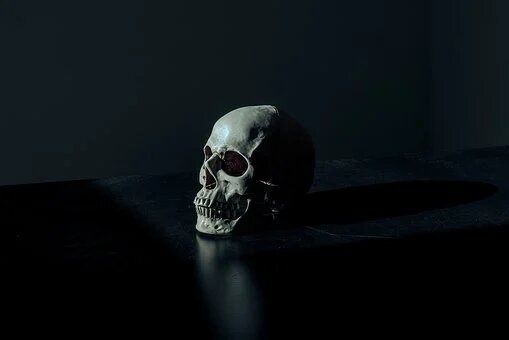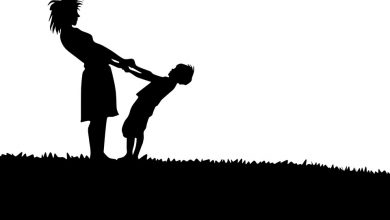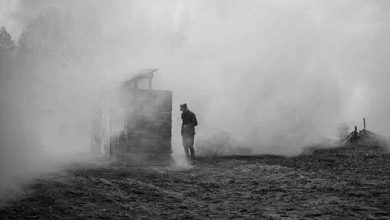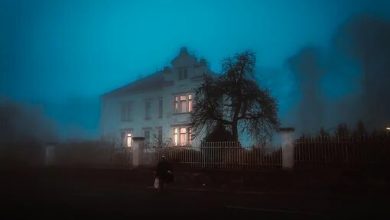
Why We Crave Horror Movies is an insightful essay by the American author Stephen King, prominently known for the genre of horror. In this essay, King talks about the functioning of human conditions through the psychology of the mind with respect to our craving, taste, and desire for horror movies. King makes use of personal anecdotes, humor, rhetorical questions, metaphors, and multiple allusions and references to provide the readers with several thought-provoking ideas and concepts in regard to human emotions to crave horror movies.
Why We Crave Horror Movies — Summary
The essay begins with a statement that suggests the psychological minds of the people, “I think that we’re all mentally ill”. He further moves to describe several strange behaviors manifested by human beings to assert his statements, such as talking to ourselves or our hysterical fears of darkness, snakes, and much more. King states that we watch horror movies to show others that we are not afraid and to establish a sense of normality as well. But more than all of this, King discerns the reason for our desire for horror movies to be that of experiencing an unusual and peculiar kind of fun. This is considered unusual because this sort of fun arises from witnessing others being scared or worse, even killed. Thus, King juxtaposes horror movies with “the modern version of the public lynching”.
King observes that horror films tend to convey and free our “uncivilized” behavior and bring forth our childish nature; moreover, they help us to let loose our insanity and thus, keep us sane. Kane views this as the release of our emotions of insanity which requires and demands us for a “periodic exercise”. Therefore, this essay suggests that people crave horror movies as they permit us to manifest our morbid fantasies and unchained nature through the effect of exciting an intense adrenaline rush.
Why We Crave Horror Movies — Analysis
In a constitutive society or the order of reality imposes upon individuals certain rules and laws to live their life, wherein the life of a being is already constituted by attaching certain markers or attributes that define the person. But these markers are not distinct nor associated with individuality because they are applicable to many others. Hence in this universal order, these markers enable certain things to be visible and thus, these visible markers are supposed to make us “civilized”. And hence, undoubtedly, every individual desire to resist such a restrictive order to express their “uncivilized” nature of being. One such “rebellious” manner to exhibit this anti-civilized nature would be watching horror movies and thus, the reason behind our craving for them. Therefore, in this essay, King puts forward the notion that we are all somewhere, subtly, mentally insane and horror movies let us keep out of projecting these insane shades of our human characteristics or simply, emotions that cannot be manifested in a “civilized” world, by letting us release these shades of insanity. Thus, King states that “we are daring the nightmare”, as soon as we decide to watch horror movies.
King begins his essay with the obvious and simple reasons for watching horror movies. Firstly, “To show that we can, that we are not afraid, that we can ride this roller coaster”, moreover, he points out that horror movies are a “province” of the young man because of the excitement and adventurous quality that lies in them. Secondly, “We also go to re-establish our feelings of essential normality” because horror movies portray and evoke an “innately conservative” nature. Thirdly, a simple reason, which is “we go to have fun”. But this reason expresses a contradictory statement, wherein King observes that the nature of fun lies in “seeing others menaced – sometimes killed”. Such a reason contradicts the second reason of reestablishing our normality as the peculiar fun here conveys an emotion of insanity, far away from any sane and normal nature.
In mythical horror movies, King observes that the films have a tendency to take away the more civilized nature of our adulthood and thus, resorting us towards our childish nature that implies independence from the social chain of conventional laws. Thus, horror movies bestow us with a sort of “psychic relief” with respect to this, “because this invitation to lapse into simplicity, irrationality and even outright madness is extended so rarely”. King describes two different types of insanity. The insanity that will push an individual to build the characters like Jack the Ripper and other figures of serial killers, “we clap you way in the funny farm”. And then there is another insanity that manifests strange behaviors within us like picking your nose or talking to yourself, then “you are left alone to go about your business” and to this, King sarcastically and humorously adds, “though it is doubtful that you will ever be invited to the best parties”, implying that you will be shunned out of society for showing this type of insanity.
But irrespective of this, King quickly underlines the observation that the “potential lyncher” is embodied within all of us and that we might be just a little better at hiding them than the people in the asylums. The intense craving for horror movies could attest to this fact. But such an observation of human beings manifesting a serial killer inside them could be a little too generalizing. However, it is true that there is a part of us that wants to escape the “civilized” nature within us. And, King highlights emotions like “love”, “friendship”, “loyalty”, and “kindness” to be the sentiments that “tend to maintain the status quo of civilization itself, all the emotions that we tend to applaud and promote. But emotions like morbid fantasies or terrifying nature, sick jokes, and strange behaviors are not promoted and thus, King terms these emotions as “anticivilization emotions”. Thus, these emotions require an order wherein they can be let out and let loose. Therefore, horror movies become one way to exercise these emotions.
Why We Crave Horror Movies — Literary Devices
King uses ample literary devices in this essay to answer his rhetorical question of, Why do we crave horror movies? The essay presents us with one of the obvious reasons for this rhetorical question through the employment of analogy. The simple reason for our daring towards such a nightmare would be to show we are not afraid of them, in a similar way that we are not afraid of the risky and adventurous amusement ride, the roller coaster. Thus, King makes a rational argument that answers the rhetorical question, echoed in the title, with the rhetorical device of analogy to compare roller coaster and horror movies, two dissimilar things, together.
The essay employs a tone of voice of humor, as well. This is clearly and literally evoked in the part where King describes the different types of insanity and makes a reference to the serial killers, Jack the Ripper and Cleveland Torso Murderer. In a parenthesis to this sentence, he adds, “but neither of those two amateur-night surgeons was ever caught, heh-heh-heh”, undoubtedly raising a tone of humor but a serious and horrifying tone of humor. The readers witness such a tone once again in the portion where King adds to the type of insanity that cannot be exhibited in our “civilized” world. Precisely, wherein, if we hug and kiss our “rotten” little sister covered in puke, the family appreciates such a gesture. But on the other hand, if we tend to “deliberately slam the rotten little puke of a sister’s fingers in the door”, then we are punished. King uses a tone of humor and sarcasm here, and moreover, he adds to this tone by conveying the consequences of such irrational behavior as “instead of a chocolate-covered graham cracker, a spanking”. This provides the readers with quite a chuckle.
King provides the essay with personal knowledge by making use of anecdotes. The essay describes “anticivilization emotions”, wherein we crack sick jokes and King narrates one, that manifests a humorous joke but yet, a horrifying anecdote. The joke goes like this:
“What’s the difference between a truckload of bowling balls and a truckload of dead babies?”. And the answer to this is that “You can’t unload a truckload of bowling balls with a pitchfork”.
Such an anecdote, undoubtedly, expresses the horrifying tone of humor that lies within them and which categorizes them as “sick jokes”.
The essay makes use of ample allusions, as well, to refer to horror movies like Die, Monster, Die, and Dawn of the Dead. An allusion is also employed to make reference to actors like Robert Redford and Diana Ross to evoke their beauty and juxtapose them with ugly and terrifying beauty.
King brilliantly employs imagery to evoke, metaphorically, the image of death. He compares the concept of death to “those final worms and grubs that are waiting so patiently underground”. Such a comparison, a metaphor, connotes the nightmare of death, and thus, King succeeds in categorizing them among the hysterical fears that we hide as a subtle way of concealing our insanity.





